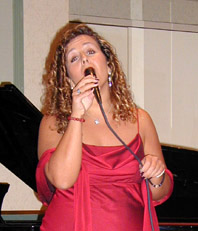 |
|||||||||||||
 |
|||||||||||||
| Also in Headline News | Archdiocese, Phanar Agree To Disagree On Church Autonomy By Robert Herschbach Four rounds of negotiations between the Greek Orthodox Archdiocese of America and the Ecumenical Patriarchate in Constantinople have concluded with both sides releasing a joint statement announcing "agreement...on all points." But the agreement throws out or waters down key measures proposed by the GOA, which was seeking more autonomy. In earlier rounds, the Patriarchate had rejected a provision that would require future Archbishops and Metropolitans to be chosen from a triaprosopon, or slate of three, provided by the Archdiocese. Currently, the Phanar has sole authority over the selection process, though the Archdiocese may offer advisory input. But the Phanar did concede one area that had been in dispute. Dioceses will be elevated to Metropolitans, and future Metropolitans will be given jurisdiction over them. Under the current system, Metropolitans are, practically speaking, bishops with honorary titles. Their sees are located in historic districts of Asia Minor, rather than in the U.S. Impact Uncertain The outcome of the talks indicates that Patriarch Bartholemew is prepared to grant autonomy at a much slower pace than advocates within the GOA had hoped. "I don't know why he's doing this," one source within the Church organization told Hellenic Communication Service. "If he doesn't allow even limited autonomy, he just helps those who want to break away completely." Since the late nineties, some have been calling for autocephaly, or complete administrative self-governance. As an example, she pointed an enhanced advisory role for the Archdiocesan Council. Currently it advises the Archbishop, but the new charter gives it a new role as advisor to the Patriarchal Synod. OCL Warns of "Discontent" The Orthodox Christian Laity (OCL), an independent organization of clergy and laity, issued a press release criticizing the process. |
||||||||||||
|
Which Way Orthodoxy? Hellenic Voice Welcomed, Inaugurated In early May, the Hellenic Voice presented its inaugural issue, garnering widespread acclaim from a community that has been without a newspaper since the much-loved Hellenic Chronicle closed down operations last year. |
|||||||||||||
 |
|||||||||||||
| Diocesan Awards 2001 Greek Orthodox faithful who have provided outstanding service to their parishes were honored at the fifteenth annual Diocesan Awards dinner. The event, attended by more than 700 people, was held on June 10th in Randolph, MA. Where Do You Stand? Participate in our online survey on issues relating to autonomy and the future of the Greek Orthodox Church in America. |
|||||||||||||
|
|||||||||||||
